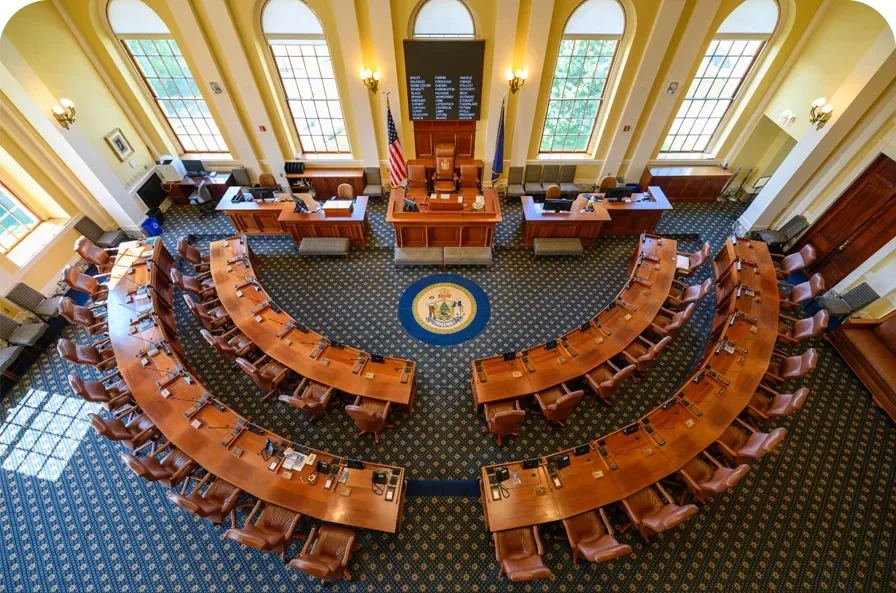
Faith. Family. Freedom.
Our Future.
We protect life, strengthen families, defend religious freedom and help equip the Church as it reshapes government and culture.
Our Values
The faith of Mainers sparked the Great Awakening. Their tenacity fueled some of the earliest battles for American freedom. Their relentless work ethic built the ships and cut the stone that helped build this nation. They lived lives rooted in faith, family, hard work, and a deep belief in freedom, rugged individualism, and Yankee ingenuity.
But the values that once made our state strong have been pushed to the margins, leaving many in Maine hurting, broken, and searching for hope.
The Christian Civic League was founded in 1897 on a simple truth: the Church holds the answers to culture’s deepest challenges, and there is no greater path to human flourishing than the one laid out in Scripture through the redemptive power of the Gospel of Jesus Christ.
That’s why everything we do is grounded in four core pillars: Faith; Family; Freedom and our Future.
FAITH
We inform, encourage, and inspire the Church to engage government as a mission field, leading with biblical values to shape culture and strengthen communities.
FAMILY
From the beginning, God established the family as the cornerstone of society. We fight for policies in the State House that protect human life, strengthen families, defend religious freedom, and uphold Biblical values.
FREEDOM
Freedom flourishes under leaders who honor God. We work to elect officials whose character and convictions are shaped by Biblical truth.
FUTURE
The future depends on the Church leading with Biblical wisdom and compassion, strengthening education, caring for families in crisis, and meeting real needs so people look to God—not government—for hope.
UPDATES
What’s Happening in Maine
Stay connected with the latest initiatives and community impact across our state.
Legislative Advocacy
An overview of current bills, priorities, and victories.
Read More
Pray for Maine
Prayer sign-up, stories, downloadable prayer guides and merch to support the cause.
Join the Movement
Get Involved
Discover meaningful ways to contribute to our shared vision for Maine.
Explore Resources
MEDIA
Recent Stories and Messages
Powerful testimonies that bring our mission to life.
FEATURED
Anchored Episode 14:
Matt Gioia
Matt Gioia of the Pines Church in Bangor joins us. "The question isn't whether Christians should be involved. The question is, how can we afford not to be?"

Join the Movement.
Be part of a community dedicated to defending truth and serving Maine.









